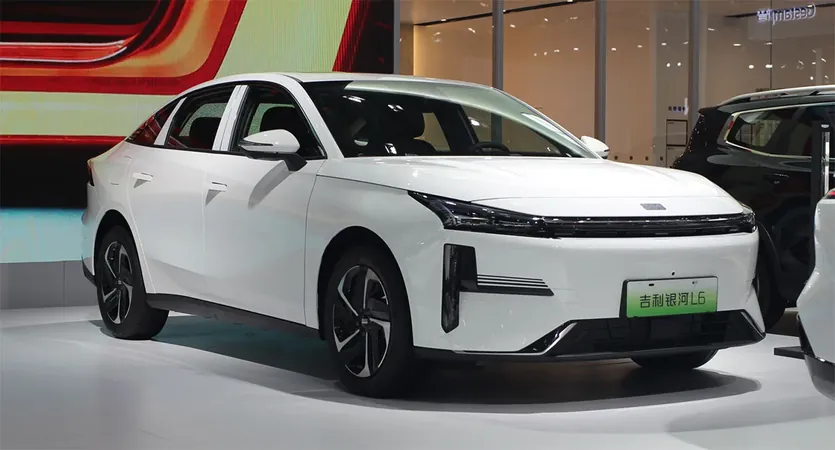
Tensions Rise as China Condemns EU Tariffs on Electric Vehicles
2024-10-04
Author: Li
Introduction
In a bold statement, China's Ministry of Commerce has expressed strong opposition to the European Union's recent decision to impose additional anti-subsidy tariffs on Chinese electric vehicles (EVs). The Ministry highlights the significance of resolving the matter through continued negotiations, viewing the EU’s latest move as an unfair and unreasonable act of protectionism that disrupts normal international trade relations.
Details of the Tariffs
Following a vote by EU member states today, which endorsed the tariffs as a long-term policy spanning five years, MOFCOM criticized the EU's actions as a violation of World Trade Organization (WTO) regulations. The ministry’s spokesperson stated that such protectionist measures harm not only China-EU trade and investment cooperation but also the EU's own transition towards sustainable green practices, jeopardizing global efforts to evoke a unified response against climate change.
Chinese Response
The spokesperson emphasized that Chinese EVs are competitive products born from a robust market-driven approach, which have significantly contributed to global green initiatives. They firmly asserted that the tariffs would stifle innovation and hinder the provision of essential green goods worldwide.
Background of Negotiations
The EU's decision comes in the wake of months of discussions between Chinese and European officials. Despite the escalating friction, both sides have been exploring alternative solutions. Notably, during talks on September 19, Chinese Commerce Minister Wang Wentao and European Commission Vice President Valdis Dombrovskis reached an agreement to initiate price commitment consultations aimed at defusing the situation.
Mixed Responses in the EU
Mixed responses were observed within the EU, with countries like Germany, Hungary, and Malta opposing the imposition of tariffs, while others, including France and Italy, supported the move. The divergence of opinions highlights the rift within the EU about the best approach to tackle trade issues related to climate technologies.
Outlook
As talks resume on October 7, MOFCOM remains hopeful that the EU will recognize that imposing tariffs is counterproductive and only serves to undermine the confidence of Chinese enterprises wishing to invest in Europe. The ministry urges the EU to demonstrate genuine commitment to resolving trade disputes through dialogue rather than unilateral actions.
Conclusion
China’s response underscores its dedication to a collaborative approach in tackling mutual interests, particularly as both powers stand at a critical junction in their economic partnership and shared responsibilities in combating climate change. Will this be the turning point in EU-China relations, or are tensions destined to escalate further?




 Brasil (PT)
Brasil (PT)
 Canada (EN)
Canada (EN)
 Chile (ES)
Chile (ES)
 España (ES)
España (ES)
 France (FR)
France (FR)
 Hong Kong (EN)
Hong Kong (EN)
 Italia (IT)
Italia (IT)
 日本 (JA)
日本 (JA)
 Magyarország (HU)
Magyarország (HU)
 Norge (NO)
Norge (NO)
 Polska (PL)
Polska (PL)
 Schweiz (DE)
Schweiz (DE)
 Singapore (EN)
Singapore (EN)
 Sverige (SV)
Sverige (SV)
 Suomi (FI)
Suomi (FI)
 Türkiye (TR)
Türkiye (TR)